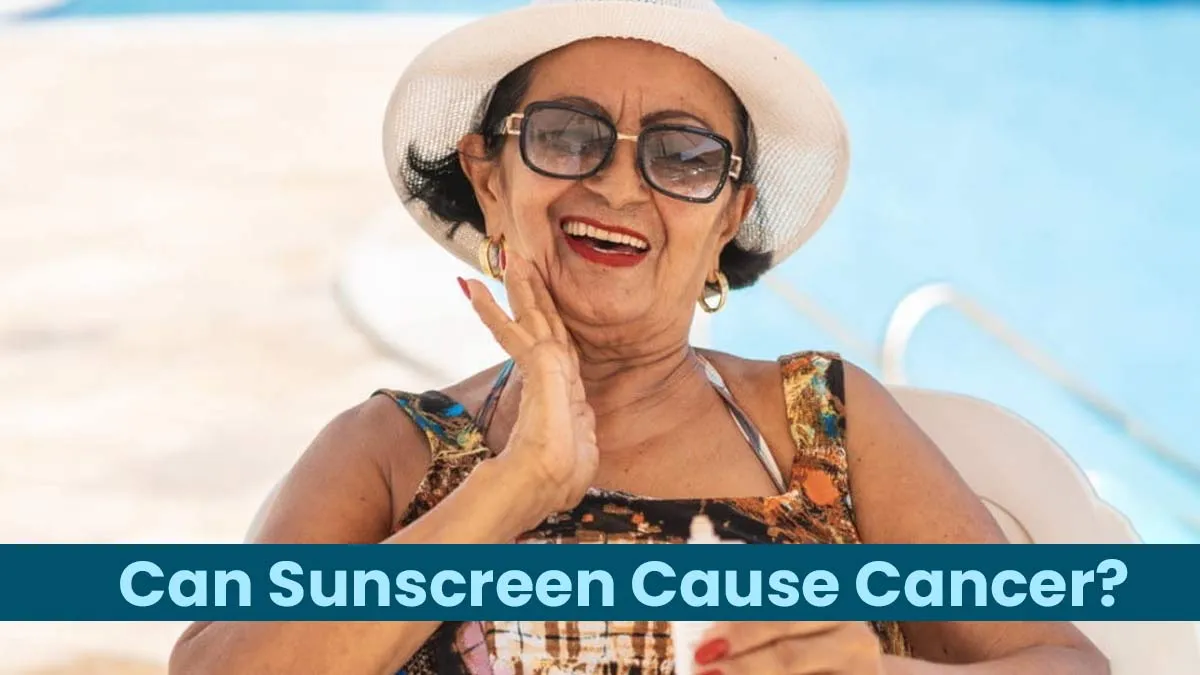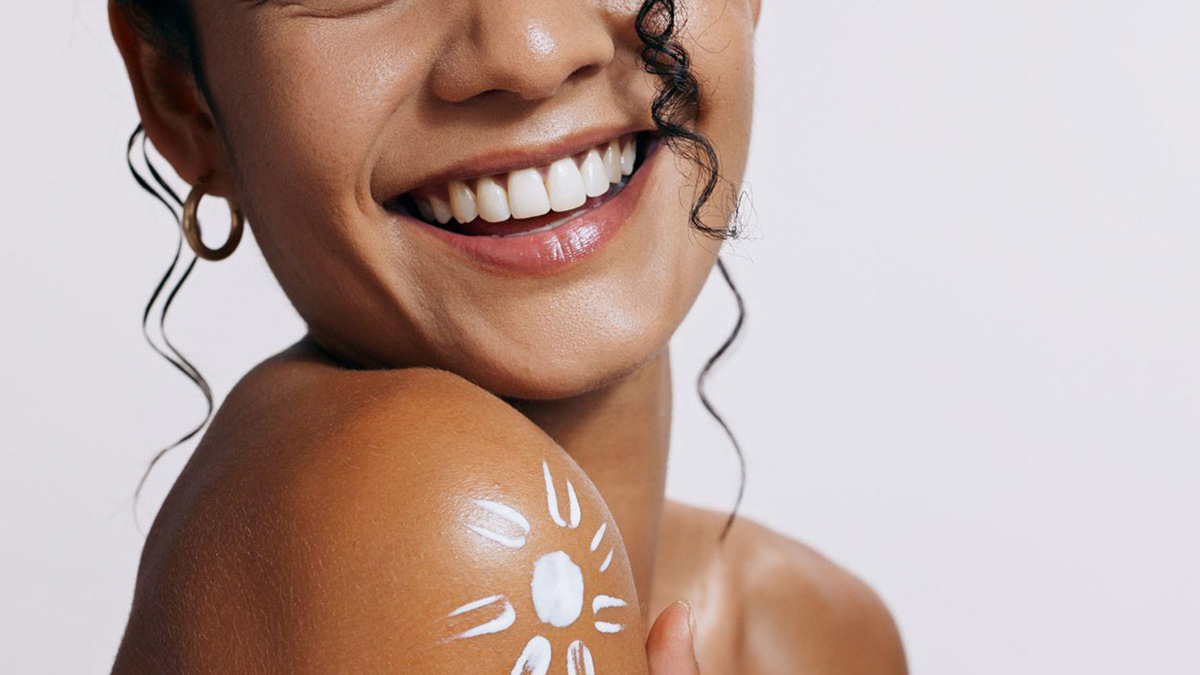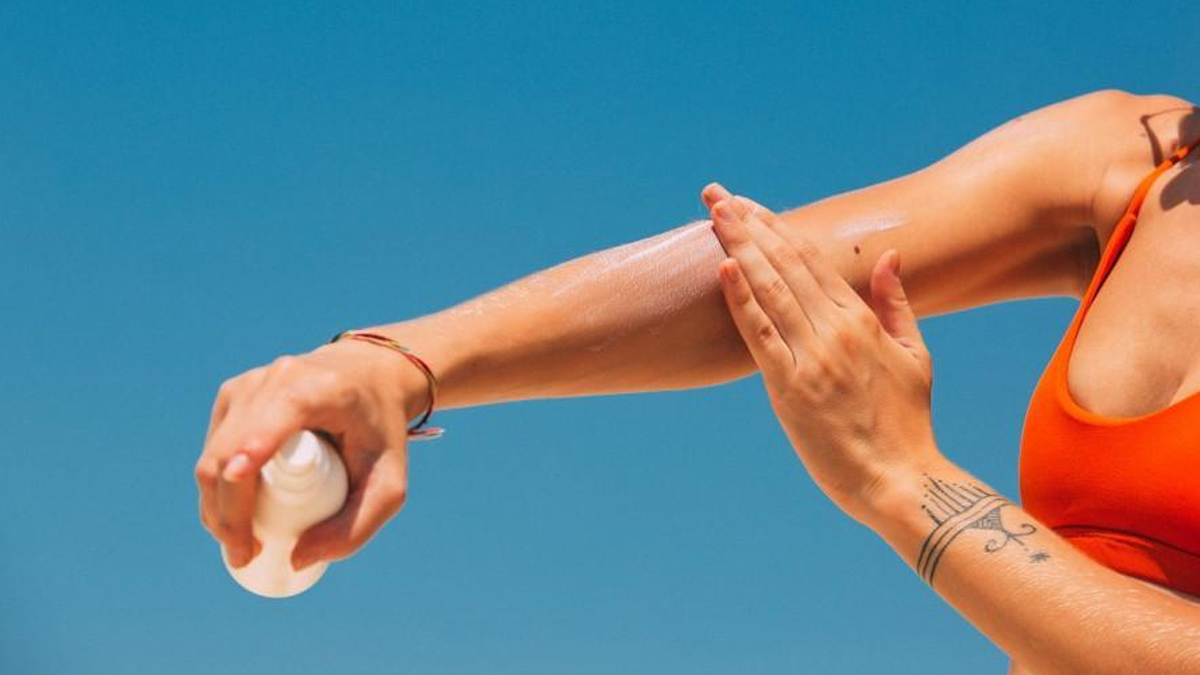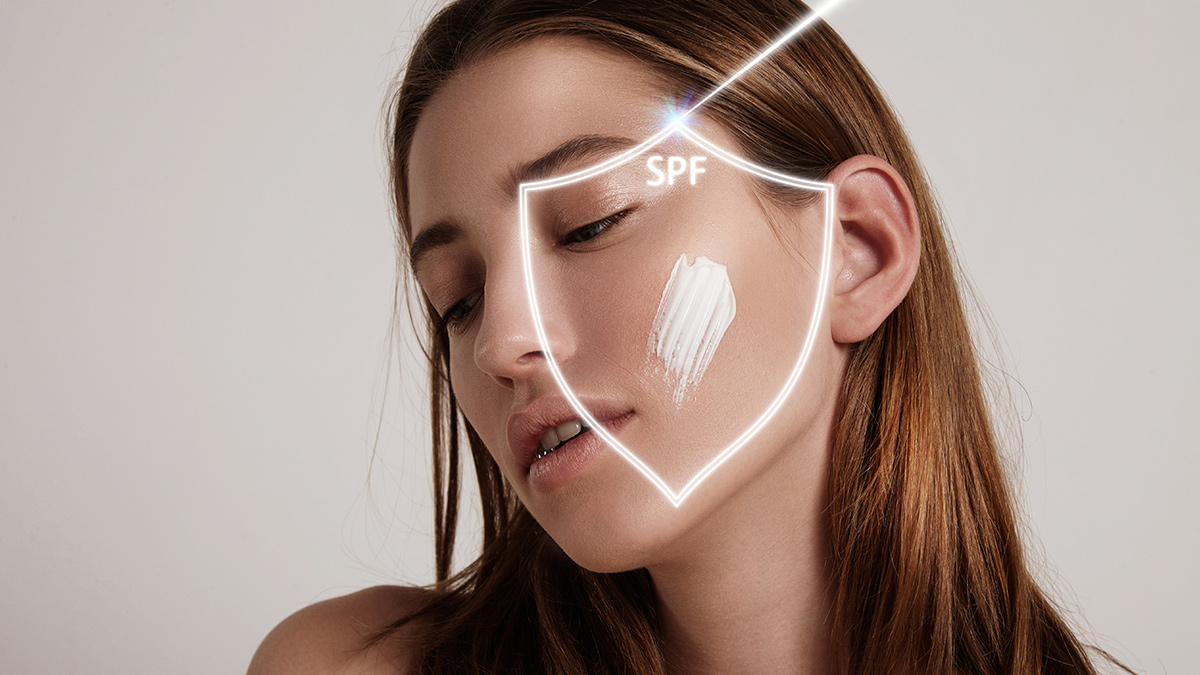
Almost everyone these days carries a sunscreen bottle or applies it before heading outdoors. Your skin faces the harsh sun. Many of us think of sunscreen only during summer vacations or beach trips. But the truth is, the sun’s ultraviolet (UV) rays are present all year round, even on cloudy days. These rays silently damage your skin over time.
Table of Content:-
This damage can show up as tanning, wrinkles, dark spots, and in some cases, even skin cancer. That’s why dermatologists keep repeating one golden rule: sunscreen isn’t optional, it’s essential.
Does Sunscreen Cause Cancer?
 According to Dr Bhawuk Dhir, Consultant Dermatology, PSRI Hospital, Delhi, sunscreen is often misunderstood. He explains that while sunscreen use is common now, many people worry about its long-term effects. Some believe that using sunscreen daily might cause cancer. Its main job is to shield your skin from the sun’s harmful ultraviolet (UV) rays. These rays, UVA and UVB, penetrate your skin and can cause deep damage. O
According to Dr Bhawuk Dhir, Consultant Dermatology, PSRI Hospital, Delhi, sunscreen is often misunderstood. He explains that while sunscreen use is common now, many people worry about its long-term effects. Some believe that using sunscreen daily might cause cancer. Its main job is to shield your skin from the sun’s harmful ultraviolet (UV) rays. These rays, UVA and UVB, penetrate your skin and can cause deep damage. O
But science says otherwise. Studies clearly show that sunscreen, when used correctly, does not cause cancer. Instead, it protects the skin from harmful UV rays. UVA and UVB rays penetrate deep into the skin, leading to premature ageing, sunburn, and in severe cases, skin cancer. Sunscreen acts like a shield, blocking and absorbing these rays before they harm your cells.
ALSO READ: Skincare: Does Makeup With Sunscreen Protect Your Skin?
Choosing the Right Sunscreen Matters
Not all sunscreens are created equal. Dr. Dhir warns against using products from untrusted or fake brands. Poor-quality sunscreens can contain harmful chemicals that might irritate the skin or do more harm than good. Always pick products from recognised companies with safety certifications.
How Much and How Often to Apply![how much sunscreen to apply 2 - 2025-09-01T130700.627]()
Applying sunscreen isn’t just about putting a little on your face and rushing out. Most people under-apply it. For proper protection, use at least a teaspoon amount for your face and neck, and about a shot-glass amount for your whole body.
Also, the application is key. You can’t just dab a little on your face and call it done. Experts recommend applying a generous layer and reapplying every 2-3 hours, especially if you’re outside for long periods, swimming, or sweating.
And don’t forget that sunscreen wears off. If you’re outdoors, reapply every 2–3 hours. This is even more important if you’re sweating or in water.
What Does PA+++ on Sunscreen Mean?![suncreen benefits 3 - 2025-09-01T130709.556]()
Many people get confused by terms like PA+ or PA++ on sunscreen packaging. PA stands for "Protection Grade of UVA Rays." Here’s the quick lowdown:
- PA+ means little UVA protection
- PA++ means medium protection
- PA+++ means high protection
- PA++++ means very high protection
UVA rays are sneaky and they penetrate deeply into the skin, speeding up ageing and increasing cancer risk over time. That’s why using a sunscreen with PA+++ or higher is a smart choice to keep your skin healthier for longer.
Sunscreen with SPF 30 or More Is Best
SPF (Sun Protection Factor) tells you how well a sunscreen protects against UVB rays, the kind that cause sunburn. For good coverage, experts recommend SPF 30 or higher. This blocks about 97% of UVB rays.
Using both SPF 30+ and PA+++ sunscreens regularly creates a strong shield for your skin. This combination protects against immediate effects like sunburn and long-term risks like skin cancer and premature ageing.
ALSO READ: What Is Basal Cell Carcinoma? Exploring Chef Gordon Ramsay’s Skin Cancer Diagnosis After Surgery
Conclusion
Using sunscreen the right way is one of the simplest and most effective habits to protect your skin. It blocks harmful UV rays, keeps the skin younger-looking, and lowers the risk of serious diseases like skin cancer. Always pick trusted sunscreens, apply enough, and reapply often. Pair sunscreen with other sun-safe habits like wearing hats and seeking shade to build strong protection naturally.
Also watch this video
How we keep this article up to date:
We work with experts and keep a close eye on the latest in health and wellness. Whenever there is a new research or helpful information, we update our articles with accurate and useful advice.
Current Version
Sep 01, 2025 13:19 IST
Published By : Vivek Kumar

